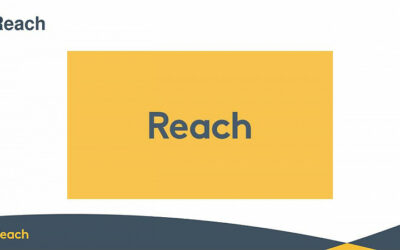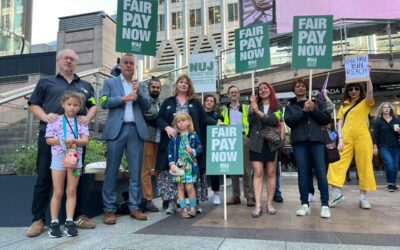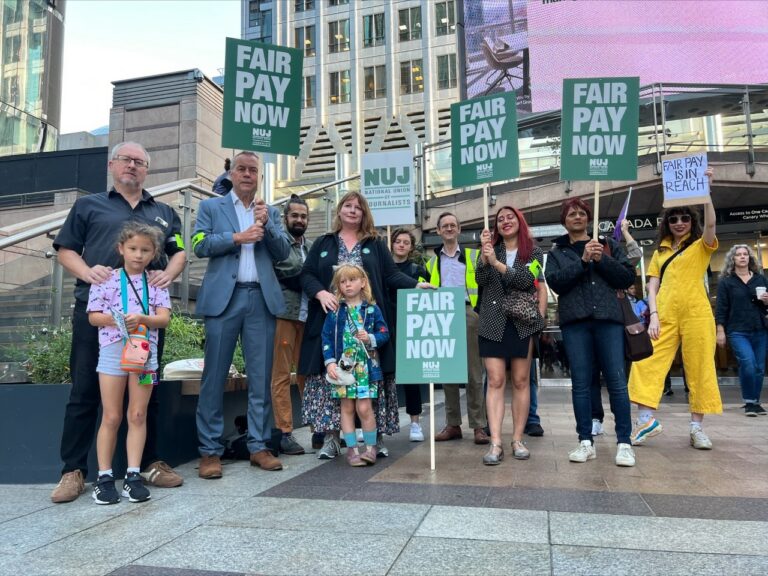Journalists at Reach could be set to receive pay increases of more than £11,000 a year following reports that a deal has been struck in the long-running dispute between the publisher and employees.
The National Union of Journalists revealed last week that a new offer, worth between 14 and 44pc for “many” editorial staff at the group had been ratified in a ballot of members. The deal would seem to bring to an end the ongoing strike action by editorial staff at the publishing giant.
So far, neither side has publicly disclosed any details about how the new pay structure will work, however Hold the Front Page reports that it has seen a message from Reach to its staff setting out further details of the agreement.
The message, according to HTFP, says that:
Trainee journalists studying towards the NCTJ diploma, trainee local democracy reporters and journalists taken on under the Facebook-funded Community News Project will go from a starting minimum salary of £19,305 per annum to £22,000, impacting 66 journalists.
Trainees who have completed their NCTJ diploma will go from a starting minimum of £20,500 to either £27,000 in London or £23,500 in the rest of the country. This impacts 112 journalists.
Senior journalists, engagement producers and newsletter leads will go from a starting minimum of £22,446 to either £33,500 in London or £30,000 in the rest of the country. This impacts 290 journalists.
Senior local democracy reporters will go from a starting minimum of £22,260 to either £33,500 in London or £30,000 in the rest of the country. This impacts 47 journalists.
Social media editors will go from a starting minimum of £22,260 to £32,000. This impacts 12 journalists.
Regional sub-editors and story editors will go from a starting minimum of £24,287 to either £33,500 in London or £30,000 in the rest of the country. This impacts 20 journalists.
Content editors, audience editors, national sub-editors and senior story editors will go from a starting minimum of £27,599 to either £37,947 in London or £34,000 in the rest of the country. This impacts 203 journalists.
The deals benefit a total of 750 editorial staff, while the remainder of the NUJ’s approximate 1,150-strong membership at Reach will receive a basic salary increase of three per cent or £750, whichever is more.
The three per cent increase had originally been offered to journalists across the board, but the union rejected that proposal on the grounds that it would not be enough to help journalists to deal with the cost-of-living crisis.
Other aspects of the deal reportedly include parity on redundancy terms for former Local World and Express Newspapers staff, as well as local democracy reporters, and a commitment that casual and freelance rates in the current NUJ house agreements will also receive the three per cent increase.
In a document explaining the pay plan to members, which HTFP says it has also seen, the union said: “The framework is designed to be consistent across all editorial up to content editor and equivalent in the nationals. We will complete validation of all employees to ensure their job titles are in the correct grouping of roles as per the progression framework before applying the new minimums. We will be working closely with management to ensure we verify the detail of each individual’s role to ensure they are paid correctly. We are aware that employees may use slightly different job titles externally than what we hold on our system and we will be paying minimums in line with the internal job titles.”
Reach has also reaffirmed its commitment to a one-off payment of £400 to all employees to help deal with the crisis, adding it intends to make a further such payment in the first quarter of next year if the group achieves “performance targets” for 2022.
Prolific North has approached both the NUJ and Reach for further comment.














